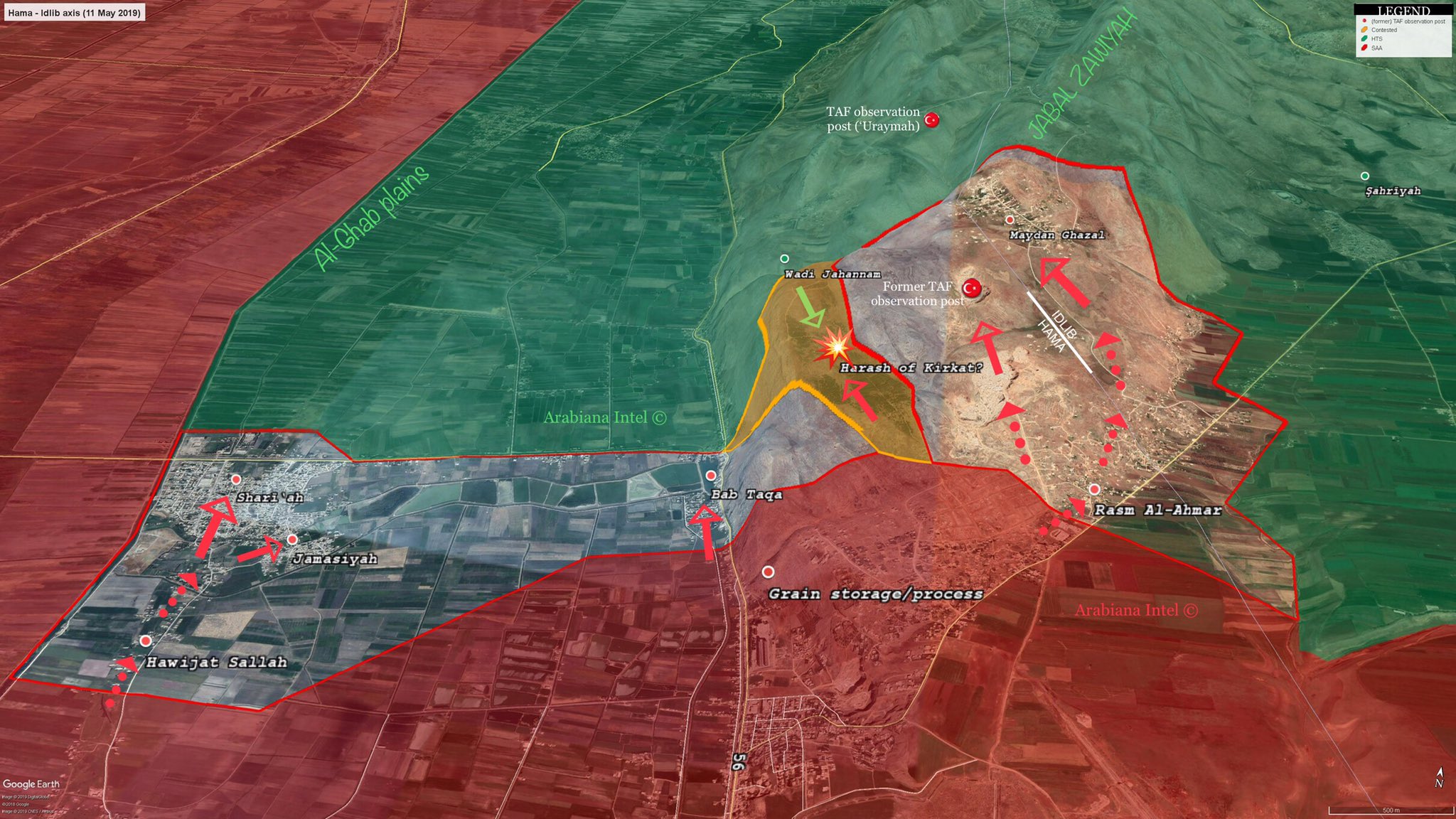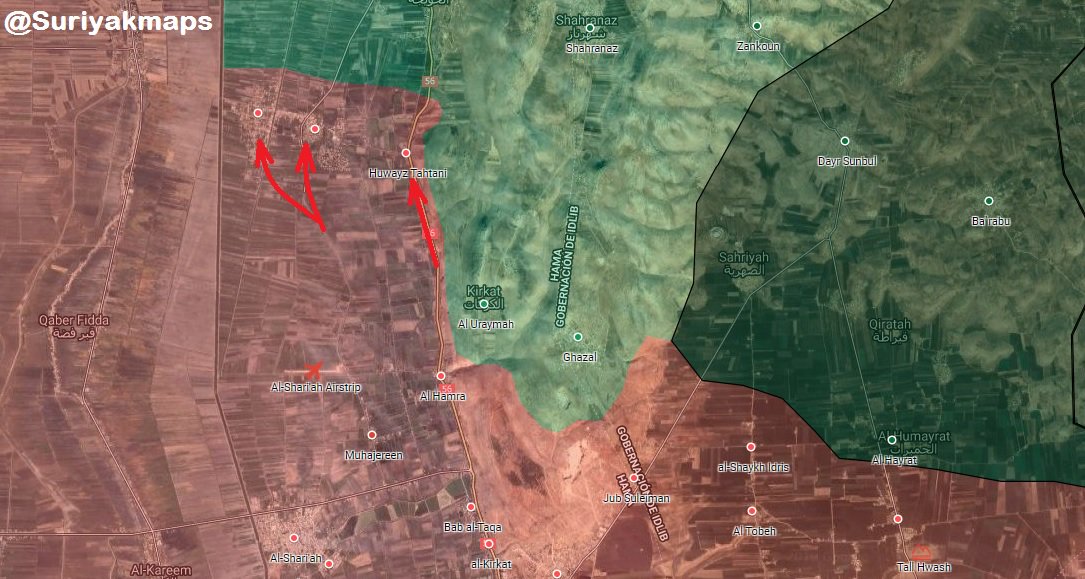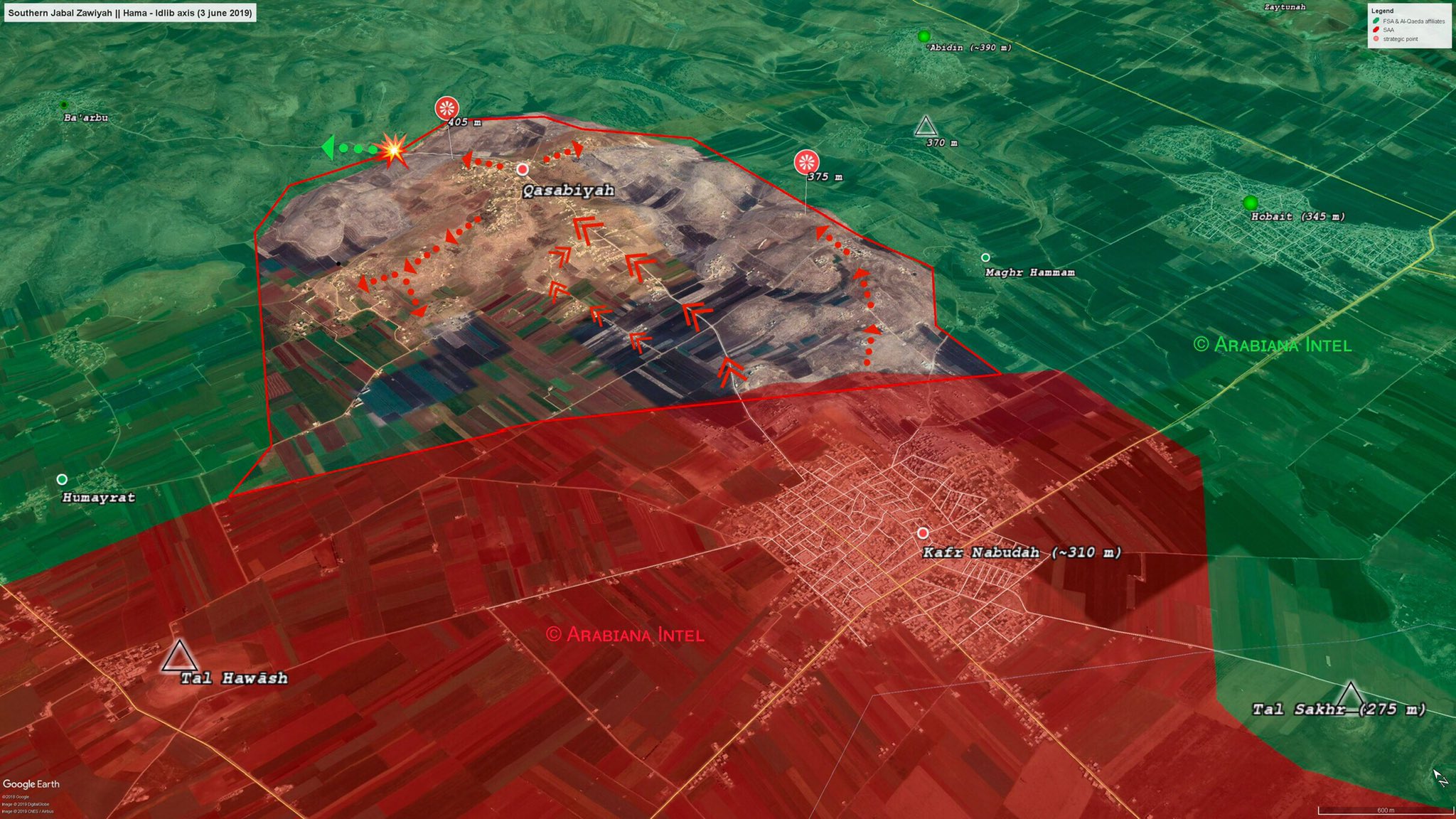Schmelzer
Valued Senior Member
A new round in Syria has been started, looks like it is time to revive this thread. Here is the starting position.

The initial battles were about so
me heights and nearby unimportant villages, and it was not really clear if this was really an offensive or just the low scale more or less permanent thing of violations of the ceasefire and retaliation.
It became clear that it is more than a local battle when Kafr Nabuda has been taken by the Syrian army:
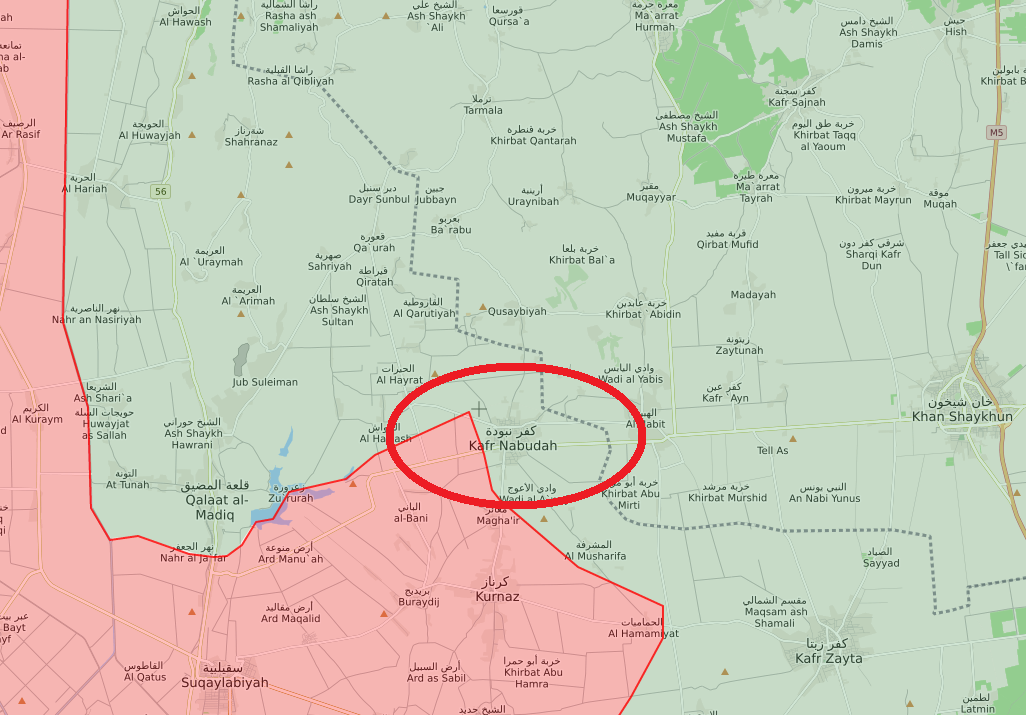
After this, the town Qalaat al Madiq was essentially taken without a fight, the terrorists had made a failed attack in the outscirts and after this have given up the town, while the locals have made an agreement with the Syrian army.
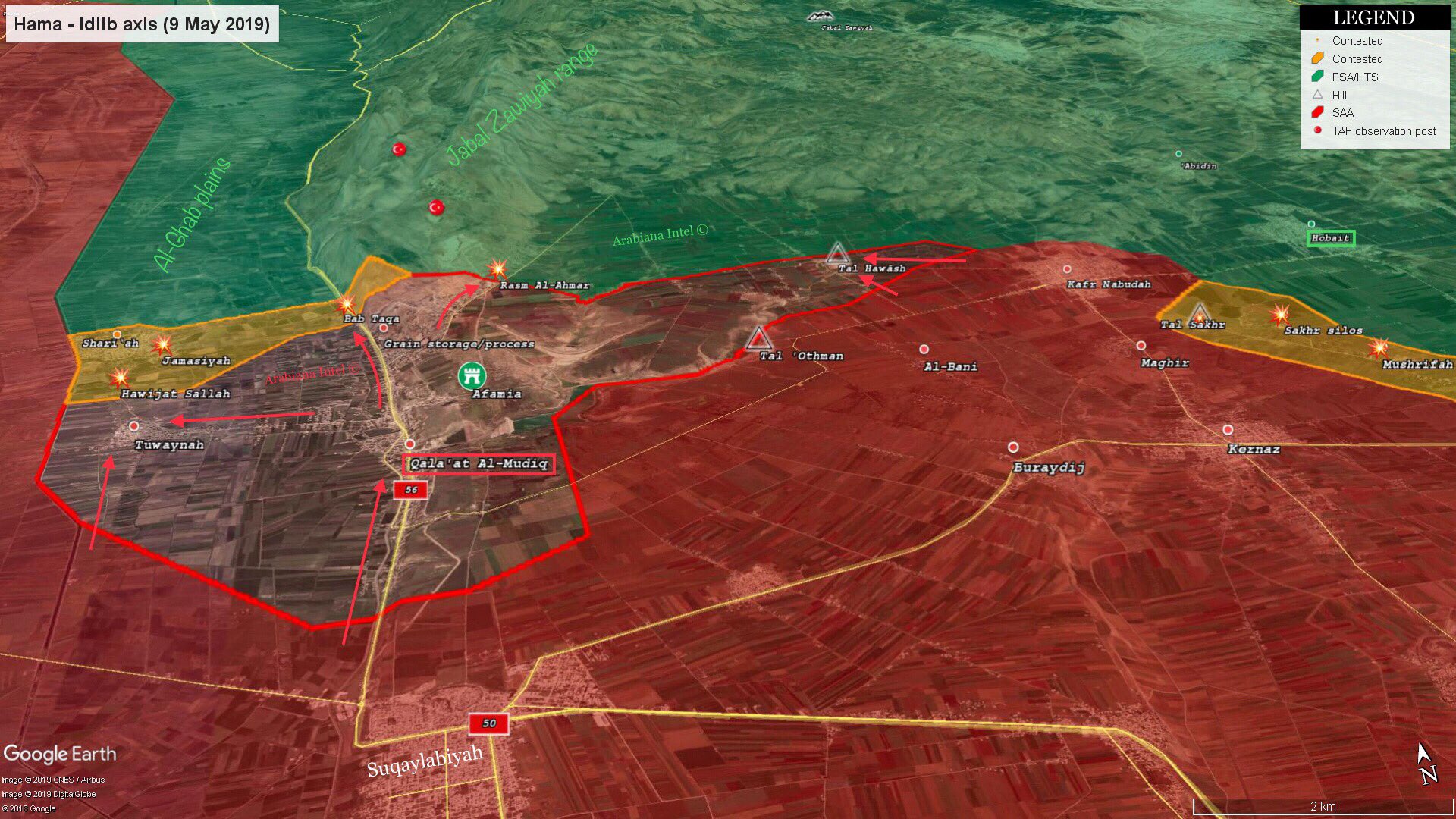
The Syrian army now goes toward the North, taking the mountains and the street, the important agrarian region of the Al Ghab plains will be probably not defended heavily if the mountains East of it have been taken.
The other direction of fighting is toward the East. Actually, there was a big counterattack against Kafr Nabuda, which has failed, and the Syrian army has taken an important hill South-East of Kafr Nabuda, which secures the town. The next big target in the East would be Khan Sheikhun. There is information about negotiations of the Syrian army with locals of Khan Sheikhun.
There has been also an attack against the positions of Hatesh in the North, in Latakia, against the most important strategic village in the mountains, Kabane. Some nearby heights have already been taken.
The general political situation is that the quite long ceasefire in Idlib was a compromise negotiated by the Russians with Turkey. The compromise was the establishment of a demilitarized zone, and Turkey offered to destroy Hatesh (renamed Al Qaida). This failed, in the infight in Idlib the winner were not the pro-Turkish (or simply Turkish paid) groups, but Hatesh. They now control most of Idlib.
Turkey seems to have accepted this failure and is in the process of withdrawing its observers of the ceasefire. It recommends the pro-Turkish groups not to fight the Syrian army. Nonetheless, many groups have now shared with Hatesh a coordination center to fight together against the Syrian army. Given that they have essentially unified with Hatesh, the Syrian army does not have to care if they were sort of pro-Turkish or not. In particular, Qalaat al Mudiq was a known SSA stronghold some time ago.

The initial battles were about so
me heights and nearby unimportant villages, and it was not really clear if this was really an offensive or just the low scale more or less permanent thing of violations of the ceasefire and retaliation.
It became clear that it is more than a local battle when Kafr Nabuda has been taken by the Syrian army:

After this, the town Qalaat al Madiq was essentially taken without a fight, the terrorists had made a failed attack in the outscirts and after this have given up the town, while the locals have made an agreement with the Syrian army.

The Syrian army now goes toward the North, taking the mountains and the street, the important agrarian region of the Al Ghab plains will be probably not defended heavily if the mountains East of it have been taken.
The other direction of fighting is toward the East. Actually, there was a big counterattack against Kafr Nabuda, which has failed, and the Syrian army has taken an important hill South-East of Kafr Nabuda, which secures the town. The next big target in the East would be Khan Sheikhun. There is information about negotiations of the Syrian army with locals of Khan Sheikhun.
There has been also an attack against the positions of Hatesh in the North, in Latakia, against the most important strategic village in the mountains, Kabane. Some nearby heights have already been taken.
The general political situation is that the quite long ceasefire in Idlib was a compromise negotiated by the Russians with Turkey. The compromise was the establishment of a demilitarized zone, and Turkey offered to destroy Hatesh (renamed Al Qaida). This failed, in the infight in Idlib the winner were not the pro-Turkish (or simply Turkish paid) groups, but Hatesh. They now control most of Idlib.
Turkey seems to have accepted this failure and is in the process of withdrawing its observers of the ceasefire. It recommends the pro-Turkish groups not to fight the Syrian army. Nonetheless, many groups have now shared with Hatesh a coordination center to fight together against the Syrian army. Given that they have essentially unified with Hatesh, the Syrian army does not have to care if they were sort of pro-Turkish or not. In particular, Qalaat al Mudiq was a known SSA stronghold some time ago.

